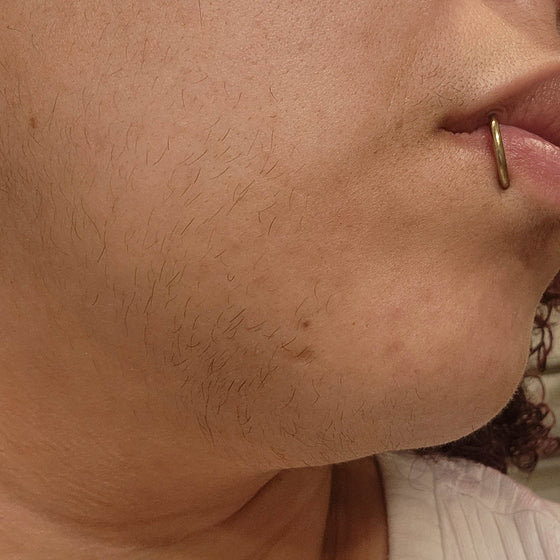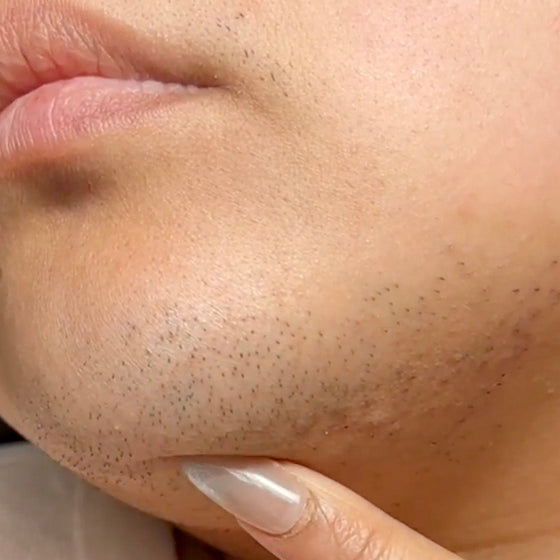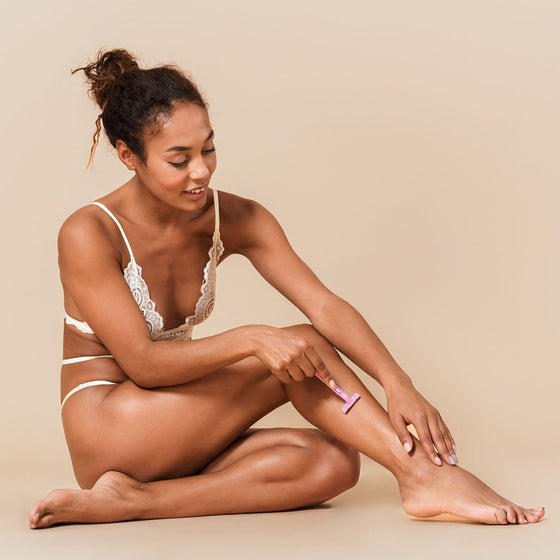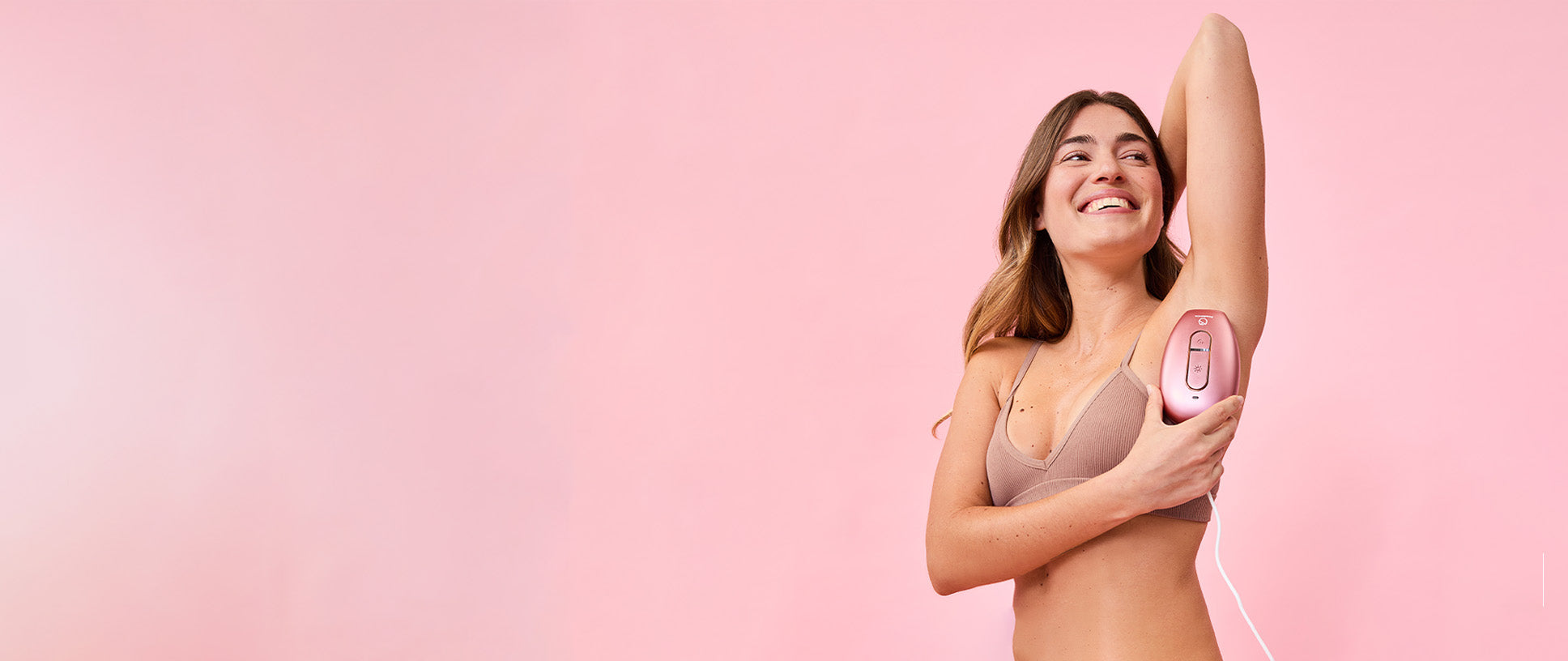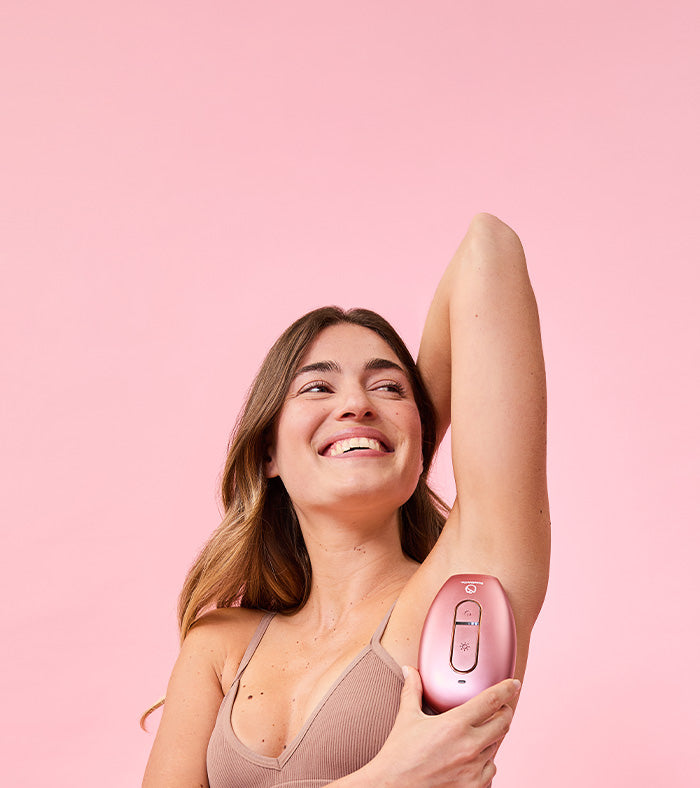If there's one time of the year we get to show off our sexy arms and legs, it is, of course, the summertime. After spending more than a year in lockdown, we're all itching to get out to the beach for some fresh air and much needed Vitamin D. The first plan on the list? Hair removal. Laser hair treatment is an excellent option for long-term and even permanent hair removal. It's one of the most effective ways to remove hair without excessive pain, skin irritation and razor bumps. But, if you're planning on undertaking laser hair removal during summer - whether at a clinic or at home with your own personal device like the RoseSkinCo IPL handset - there are a few things to keep in mind.
Why you should you avoid direct sunlight after using your IPL handset
Many leading dermatologists have recommended staying clear of direct sunlight right after a laser hair removal session. One of the many reasons why IPL is an excellent option for hair removal is that it has the ability to alter melanin in your skin, which can eventually prevent thick dark hair from growing back.
The RoseSkinCo handset uses light energy from the IPL to target melanin in the hair to prevent future hair growth. When melanin absorbs the light energy, the heat to eliminates hair cells causing regrowth to slow down after each treatment. However, when melanin suddenly changes, it can interfere with your skin’s healing process after a treatment session. Although the process itself is totally safe, it does leave the skin more vulnerable and sensitive, and exposing the skin to strong sunlight while it is sensitive should be avoided.
Is it safe to do laser hair treatment during the summer?

So, can you use a device like the RoseSkinCo IPL hair removal treatment during the summertime? The answer is yes, but precautiously. Choosing to undergo laser hair removal treatment in the summer isn't all that different to getting it done in the colder months. However, it does require more care and attention. You will need to be extra careful during the summertime, especially if you live in an area with plenty of strong sunlight.
It takes time for your skin to fully heal, and it's best to take extra safety measures to protect it from direct sunlight after treatment. That doesn't mean you have to stay indoors at all times after using the RoseSkinCo IPL handset (or any other type of laser hair treatment) - just be a bit more careful and avoid exposing your treated skin to strong sunlight.
Here are a few things you can do to help protect your skin while using the RoseSkinCo IPL handset in the summer:
1. Avoid tanning right after a laser hair removal session
Although it may be tempting to lay out in the sun during your summer vacation, exposing your skin to direct sunlight right after a laser hair removal session can cause severe damage and irradiation to the skin. This applies to both sunbathing on the beach and visiting your favourite tanning salon. As mentioned before, laser hair removal alters the hair follicle to prevent it from growing. When there's a sudden change to the melanin, as a result of the treatment, there is an increased risk of sunburn and other permanent sun damage, since melanin is part of the skin’s natural protection against the sun. Your skin needs to take time to fully heal before it is advisable to get back out into the sun. We recommend waiting up to two weeks after an IPL session before exposing your treated area to summer sun.
2. Use a strong SPF daily
As explained above, exposure to UV rays between your laser hair removal sessions can make treated areas susceptible to burns and discomfort. If you are planning on spending some time outside, be sure to apply sunscreen every two hours to ensure that your treated area is properly protected. SPF will protect your skin against UV rays and should be worn even on days when there is an overcast sky or if you're mostly staying indoors. Whether or not you have decided to use an IPL during the summer, it's essential to use a strong sunscreen with an SPF of at least 30 to protect your skin.
3. Wear physical sun blocks
While SPF can help to protect your skin from UV rays, it's important to make sure the treated area is also protected by a physical sunblock (items of clothing that cover an area of your skin from sun exposure.) However, when going through laser hair removal, be sure to wear loose-fitting clothing to allow the skin to breathe. For example, if you've used laser hair removal on your legs, opt to wear a maxi dress or skirt or loose-fitting pants/trousers. For arms and armpits, wear a long sleeve shirt that covers the treated area. And be sure to wear a large, brimmed hat if you've had laser hair treatment on the face.
4. Use your IPL device on areas of the body that are usually covered
A better practice when using an IPL in the summer is to focus on areas of your body that are usually covered. This can be your armpits, bikini area, stomach and other parts of your body that aren't always exposed to sunlight when outdoors. While it is possible to undergo laser treatments on larger parts, like the arms and legs, sometimes the best option is to focus on areas that are likely to be more protected during the summer.
5. Keep your treated skin moisturised
It is essential to keep your treated skin moisturised and nourished in between your IPL hair removal sessions. As mentioned before, treated areas are often more sensitive and vulnerable to irritation. In addition, when the weather becomes warmer, certain skin types, particularly sensitive types, are more likely to become more dehydrated. Keep your skin well hydrated by applying a moisturising body lotion daily. If you've spent some time outside or are experiencing any feelings of a burning sensation, using a body lotion with hydrating ingredients, such as aloe vera can help alleviate feelings of discomfort.


